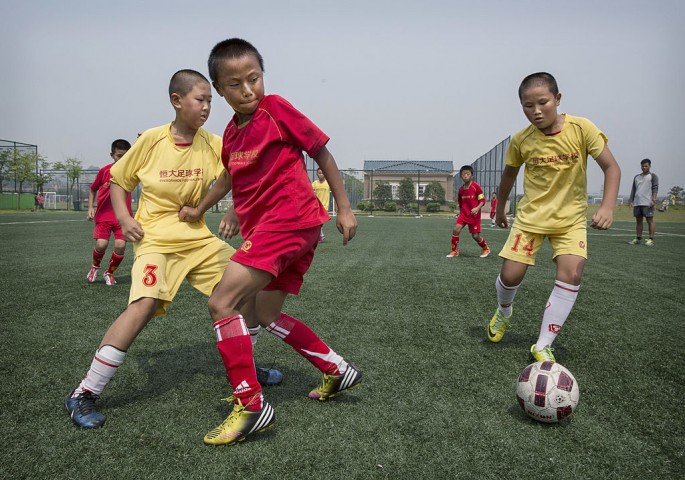China’s soccer superpower goal might be difficult to attain amid socio-cultural hindrances and lack of soccer-fan culture to motivate youngsters to play “the beautiful game.”
Weeks after Beijing's big reveal of its plan to become a "soccer superpower" in a few decades, China had been subject of ridicule and criticism.
While it may seem a grand idea for President Xi who had been a long-time fan of the game, not many are confident that China will achieve its goal within the given timeframe.
In fact, Forbes contributor Andrew Brennan pointed out some realistic reasons why the goal of making 50 million Chinese children playing the game in four years is farfetched.
The Goal
Making the big revelation over the official website of the National Football Association on April 11, Beijing vowed to make China the biggest soccer-playing population of the world.
"We'll make all-out efforts to reach the goal of developing China into a top-tier soccer power between 2031 and 2050 to realize the Chinese people's soccer dream and to make our due contributions to the sport," the Chinese government declared in the document.
Part of the plan was to establish 20,000 schools that would specialize in soccer training and to build 70,000 fields for the athletes to play in by 2020.
As previously reported, the ultimate goal was to make China a "soccer superpower" by 2050, a clear embodiment of Xi's love for the sport.
It was also stated that aside from becoming internationally renowned in the sport, China's soccer goal also had economic and political implications that had already begun bearing fruit in the form of massive unprecedented investments in the Chinese Super League.
In fact, the big soccer plan has already received support from some of the country's biggest firms such as Dalian Wanda Group and Alibaba Group.
Soccer Superpower Hindrances
But like any other big dream, China's big soccer powerhouse goal is faced with a couple of hindrances.
According to the Forbes contributor, there are significant socio-cultural barriers that might greatly affect the success of Beijing's soccer plans.
"Chinese parents don't see football as a profession. Chinese fan culture is also needed--and needs icons or star players to raise the standard of play--to teach the Chinese players, and generate fan engagement and increase stadium attendance," Brennan wrote.
He further noted that China's current strategy to improve the skills of local soccer players only guarantees for domestically honed talent to participate in the World Cup.



























